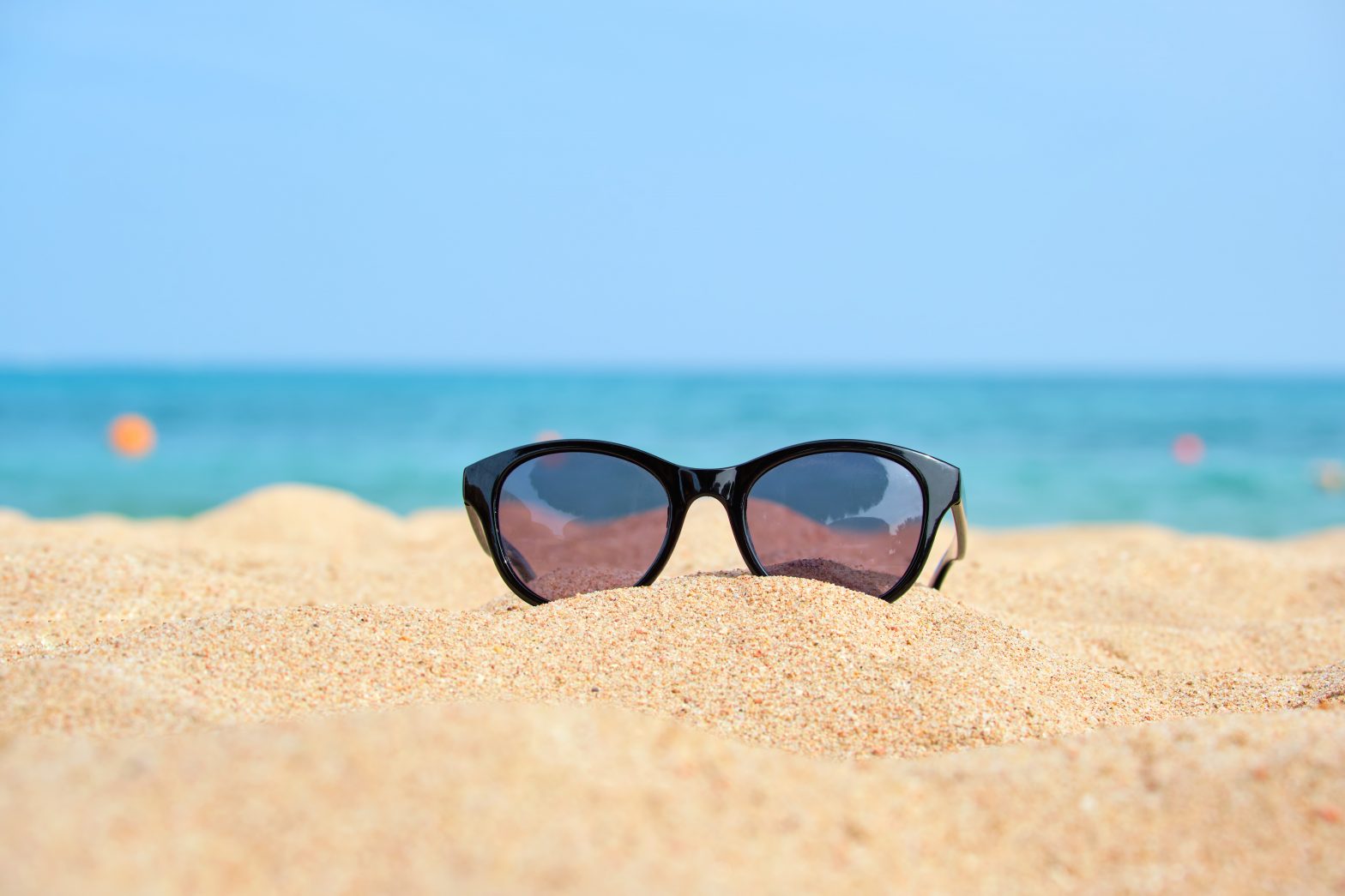Package holidays are a popular option for British families, with many finding them to be a convenient and cheaper option when travelling abroad. Most of these package holidays include meal options, further adding to the convenience. Unfortunately, in this particular case, Mr Griffiths, fell ill after staying at an all-inclusive hotel he had booked with the package holiday provider, TUI. Following a long-running legal battle, the case eventually ended up in the Supreme Court.
The case has important consequences for personal injury law, with the Supreme Court finding that Mr Griffiths did not receive a fair trial. It also answers an important question as to whether a judge can reject uncontroverted evidence.
Keep reading to learn more about the case and the consequences of the decision by the Supreme Court.
Background

In August 2014, Mr and Mrs Griffiths and their youngest son were staying at a resort in Turkey on a TUI package holiday when Mr Griffiths suffered from a serious gastric illness after eating at the hotel. He was then admitted to hospital and subsequently diagnosed with acute gastroenteritis. This left him with long-term health problems and permanent symptoms.
Following his admission to hospital, Griffiths issued proceedings against TUI. His claim was pursued on two bases:
1. The claiming of damages against TUI under the Package Travel, Package Holiday and Package Tour Regulations 1992
2. The pursuing of a claim under sections 4 and 13 of the Supply of Goods and Services Act 1982
Initial trial
Despite this, TUI’s defence saw them deny that Mr Griffiths’ illness had been caused by any food or drink that he had consumed at the hotel. This led to him obtaining medical reports from a gastroenterologist and a microbiologist to support his claim. TUI also had permission to rely on expert evidence from a microbiologist and gastroenterologist but failed to serve a report from the latter within the timeframe specified by the court. Furthermore, they decided they would not serve a report by a consultant microbiologist. This resulted in TUI going to trial without the support of expert evidence.
The judge held that the claimant had to satisfy the test in Wood v TUI [2017] EWCA Civ 11 (CA). That is to say, the burden lies on the claimant to be able to prove that the food or drink provided by the hotel as part of the package holiday caused their illness.
Despite evidence suggesting that Mr Griffiths fell ill as a result of consuming food or drink from the hotel, the Judge held that there were deficiencies in the report by the gastroenterologist and dismissed the claim.
High Court
This takes us to the High Court, which the Claimant appealed to. The High Court Judge had to decide whether Judge Truman, the judge in the previous trial, had made a mistake by rejecting the gastroenterologist’s report.
The two main questions that he proposed that should be asked were: first, whether a court is obliged to accept an expert’s uncontroverted opinion even if that opinion can properly be characterised as bare ipse dixit and, if not, what are the circumstances in which a court is justified in rejecting such evidence; and, second, whether, in any event, Professor Pennington’s report could in fact be properly described as no more than a bare ipse dixit entitling the learned judge to reject it despite being uncontroverted”.
This decision went in the favour of Mr Griffiths, with the High Court finding that the report by the gastroenterologist, Professor Pennington, was uncontroverted as TUI did not provide any evidence to challenge the findings of the initial report. This would later prove to be an important factor in the decision by the Supreme Court. The High Court’s decision led to TUI appealing the decision to the Court of Appeal.
Court of Appeal
Two of the Justices allowed the appeal. However the other, Lord Justice Bean, held that the view taken by Lady Justice Asplin that a party could reserve its criticisms of a report until closing submissions was wrong. He also held that the Claimant did not have a fair trial and made clear his view that courts should not allow litigation by ambush. Finally, he also disagreed with Lady Justice Alpin that a party should be able to wait until closing submissions to reserve its criticisms of a report. As a result of Lord Justice Bean’s decision, permission was granted to appeal the decision to the Supreme Court.
Supreme Court decision
Now we come to the focus of this article, the Supreme Court decision. In a unanimous decision, the Supreme Court found in favour of Mr Griffiths and held that his trial had been unfair. They found that both the trial judge and the majority of the Court of Appeal had erred significantly.
While the trial judge had failed to consider the effect of TUI’s failure to cross-examine Professor Pennington on the fairness of the trial, the Court of Appeal had limited the “scope of the rule to challenges of the honesty of a witness”. Lord Hodge ruled that the expert report of Professor Pennington was sufficient and Mr Griffiths had established his case based on the balance of probabilities and the evidence provided.
The Supreme Court referred to Phipson on Evidence, a leading work on civil and criminal evidence, in making their decision. Phipson on Evidence sets out the need for a party to “challenge on cross-examination the evidence of any witness of the opposing party if it wishes to submit to the court that that evidence should not be accepted”.
Lord Hodge further held that the the advancement of detailed criticisms of the report in TUI’s submissions was not fair in the absence of a proper challenge on cross-examination. He also found that it was a failure by the trial judge to accept such submissions. Furthermore, Lord Hodge held that it was not the court’s business to investigate admitted facts, such as the expert report provided by Professor Pennington.
Our comments
This is a significant ruling by the Supreme Court which emphasises the importance of a fair trial. The evidence was enough for Mr Griffiths to win despite not being ‘perfect’ in the eyes of the court. Furthermore, the failure of TUI to challenge Professor Pennington’s report meant that it was unfair for TUI to both advance its criticisms and for the trial judge to accept them. This judgement will be welcomed by travel lawyers and those working within personal injury law by ending the ability of large corporations by TUI to attack expert witness reports without proper cross examination.
Have questions? Get in touch today!
Call us on 020 7928 0276, phone calls are operating as usual and we will be taking calls from 9:30am to 6:00pm.
Email us on info@lisaslaw.co.uk.
Use the Ask Lisa function on our website. Simply enter your details and leave a message, we will get right back to you: https://lisaslaw.co.uk/ask-question/
For more updates, follow us on our social media platforms! You can find them all on our Linktree right here.




Toolbox Hub appears to be a comprehensive online resource offering a wide array of tools designed to streamline and enhance various tasks for professionals, students, and everyday internet users. Its extensive suite of text tools, including generators for dummy text and legal documents, as well as converters and counters, provides essential assistance in content creation and editing. The image editing tools, from basic resizing to more complex conversions, make it an invaluable asset for graphic designers and photographers alike. Moreover, Toolbox Hub’s calculators cover an extensive range of needs from basic arithmetic to more specialized calculations like sales tax and loan estimations, appealing to a broad audience including individuals in finance and academia. The unit converter tools further extend its utility, offering quick and accurate conversions across various units, making it a go-to resource for engineers, scientists, and students. For the tech-savvy, the website offers a collection of binary and website management tools that can aid in coding, website optimization, and debugging. These features are particularly beneficial for developers and webmasters looking to enhance their site’s performance and user experience. Overall, Toolbox Hub positions itself as a versatile and powerful ally in the digital world, providing a multitude of tools under one roof to simplify complex tasks, enhance productivity, and foster creativity. Its intuitive design, coupled with the sheer variety of tools available, makes it an attractive option for anyone looking to optimize their digital tasks. Whether you’re drafting a document, editing an image, or calculating complex equations, Toolbox Hub seems equipped to provide the necessary tools for a wide array of tasks.
Hey there You have done a fantastic job I will certainly digg it and personally recommend to my friends Im confident theyll be benefited from this site
From content creation to image editing, and from detailed calculators to comprehensive web management tools, ToolBox Hub has it all. Our easy-to-use interface makes navigating through these tools effortless, enhancing your productivity.
Simply wish to say your article is as amazing. The clearness in your post is just nice and i could assume you’re an expert on this subject. Well with your permission let me to grab your feed to keep updated with forthcoming post. Thanks a million and please carry on the gratifying work.
Introducing PromptScroll – Your Gateway to Advanced AI for Just $9 a Month!
Wanna shrink your URLs? Swing by my site at v.af! Make your links easy-peasy. Drop by now, and see how simple it can be!
Hi, I do think this is a great site. I stumbledupon it 😉 I am going to come back once again since i
have book marked it. Money and freedom is the greatest way to change,
may you be rich and continue to guide others.
[url=https://lisinoprill.com/]zestril 30 mg[/url]
[url=http://lisinoprildrl.online/]cost of lisinopril 20 mg[/url]
[url=http://avermox.online/]buy vermox uk[/url]
[url=https://odiflucan.com/]diflucan otc where to buy[/url]
When some one searches for his essential thing,
therefore he/she desires to be available that in detail, so
that thing is maintained over here.
[url=http://sildalis.store/]buy sildalis[/url]
[url=http://valtrexv.online/]cheapest on line valtrex without a prescription[/url]
[url=https://amoxicillinbact.com/]augmentin tabs 625mg[/url]
[url=https://zithromaxl.online/]generic zithromax online[/url]
[url=http://tadalafilu.com/]cialis wholesale[/url]
[url=http://tadacip.store/]tadacip prices in india[/url]
[url=https://lasixor.online/]buy furosemide 40 mg online uk[/url]
[url=http://valtrexv.online/]buy generic valtrex cheap[/url]
[url=http://doxycyclineo.com/]doxycycline order uk[/url]
buying prescription drugs in mexico online
https://cmqpharma.com/# mexico drug stores pharmacies
mexican border pharmacies shipping to usa
[url=http://zithromaxl.online/]where to get azithromycin[/url]
mexican drugstore online
http://cmqpharma.com/# pharmacies in mexico that ship to usa
mexican border pharmacies shipping to usa
[url=https://dexamethasonen.com/]dexamethasone 16 mg[/url]
[url=https://tadalafilu.com/]online pharmacy cheap cialis[/url]
Very interesting info!Perfect just what I was searching for!Money from blog
[url=https://declomid.online/]clomid pharmacy online[/url]
[url=https://baclofenx.online/]baclofen 10 mg buy online[/url]
[url=https://eflomax.com/]buy flomax online[/url]
world pharmacy india [url=https://indiapharmast.com/#]reputable indian online pharmacy[/url] indian pharmacy online
https://canadapharmast.com/# canadian mail order pharmacy
canadian family pharmacy [url=http://canadapharmast.com/#]canadian pharmacy king[/url] canadian pharmacy king reviews
https://indiapharmast.com/# india pharmacy
[url=http://albuterolp.online/]albuterol ipratropium[/url]
buy medicines online in india [url=http://indiapharmast.com/#]indian pharmacy[/url] india online pharmacy
https://foruspharma.com/# mexican rx online
paxlovid india: paxlovid generic – paxlovid cost without insurance
amoxicillin 500 mg without a prescription: amoxicillin medicine – buy amoxicillin 500mg online
buy cipro online canada: ciprofloxacin generic price – buy generic ciprofloxacin
can you buy doxycycline online: doxycycline tablets – buying doxycycline online
buy cipro: cipro – where can i buy cipro online
[url=https://lasixtbs.online/]buy generic furosemide[/url]
buy doxycycline online 270 tabs: doxycycline caps 100mg – doxycycline price comparison
[url=https://lasixor.online/]lasix 80[/url]
doxycycline for sale online: doxycycline uk online – doxycycline 100mg tablets